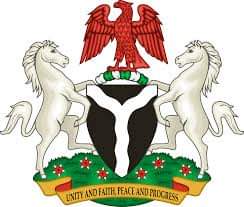
Nigeria has produced 180 governors and 241 ministers since 1999, a research has shown.
The research also shows that about 545 senators and 1,800 House of Representatives were elected within the same period.
But, most Nigerian women and youths have been left out of power in the last two decades.
These facts are contained in a book – “Nigeria Democracy without Development – How to fix it”– by a renowned Author and Researcher, Dr. Omano Edigheji.
The book said in part: “Since 1999, all four presidents and four vice presidents have been male. At the ministerial level, 85.06 per cent of the 241 ministers have been male.
“In July 2019, President Muhammadu Buhari announced the nomination of 43 ministers for his second term. Out of these, only seven, that is 16 per cent, were women.
“In the four administrations since May 1999 to May 2019, 93.81% of Senators have been male compared to 6.19 per cent female.
“Out of the 1,800 members of the House of Representatives in the period from May 1999 to May 2019, only 93 members(5.2 per cent) have been male, compared to 1,707 (94. 8 per cent) male
“The only female to have emerged as Speaker of the House in July 2007, Patricia Ette, was removed after barely five months in office.
“The declining trend of women representation continued in the 9th National Assembly that was inaugurated on June 11, 2019. Out of 109 Senators, only seven were women. While of the 360 members of the House of Representatives sworn in, only 11 were women.”
On governorship position, Edigheji said the nation has produced 180 governors and over 180 deputy governors.
The book added: “All the 180 governors in the period between May 1999 and May 2019 in the Fourth Republic were males. In the same vein, 88.3 per cent of deputy govetnors have been male compared to 11.6 per cent (21) female.
“Out of the 2,850 members of the State Houses of Assembly since 1999, only 168(5.89 per cent) have been female compared to 2,682(94.11 per cent) male.
”Again, like in previous elections, there was no woman among the governors that were elected in the 2019 general elections. Only three female deputy governors were elected namely Ezeilo Cecilia Ibioma(Enugu State), Dr Hadiza Sabuwa Balarabe (Kaduna State)and Noimot Salako-Oyedele (Ogun State).”
The book x-rayed the implications of women under-representation.
It said: “What these figures show is that democracy has not been inclusive-women are excluded from elective and other leadership positions.
“The same is true of the youths. It can therefore be argued that Nigerian democracy is exclusionary, leaving out women and youths. An electoral process that makes it impossible for women and youths to be elected is not a democracy.”
The research made reference to the report of the European Union Observer Mission (EOM) to the 2019 General Elections.
It claimed that the EOM report was clear on why Nigerian women and youths were being relegated.
The research said: “The report of the European Union Observer Mission (EOM) to the 2019 general elections highlighted some of the factors that account for the low representation of women in politics.
“These include lack of legal requirements for the promotion of women and in political life. Parties continue to lack policies and practices to promote women in party leadership or as candidates.
“Other factors include the dominance of money in politics, women cannot afford the prohibitive cost to run for elective office; political violence, gender-based intimidation and sexual harassment; the nocturnal nature of politics (meetings are held at odd hours) and; a patriarchal (and even religious) culture that views women’s role as homemakers and discourages their participation in politics.
“It is not uncommon to hear people refer to women in politics as ashawo, that is, prostitutes. Consequently, as the EOM report points out, Nigeria has the lowest rate of women parliamentarians in Africa and has failed to meet the 35% national target of women in elected positions prescribed in the National Gender Policy of 2006.”












